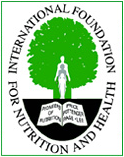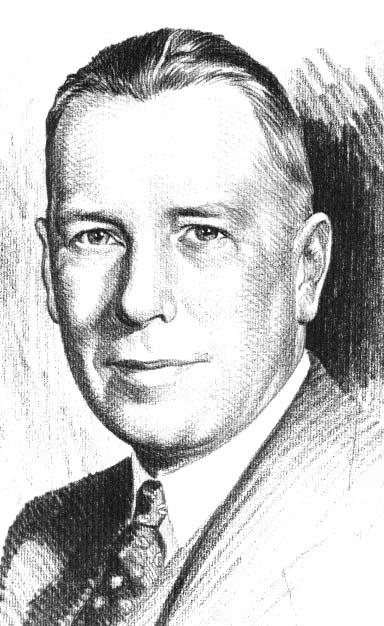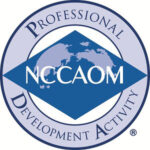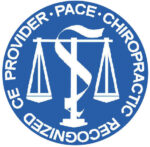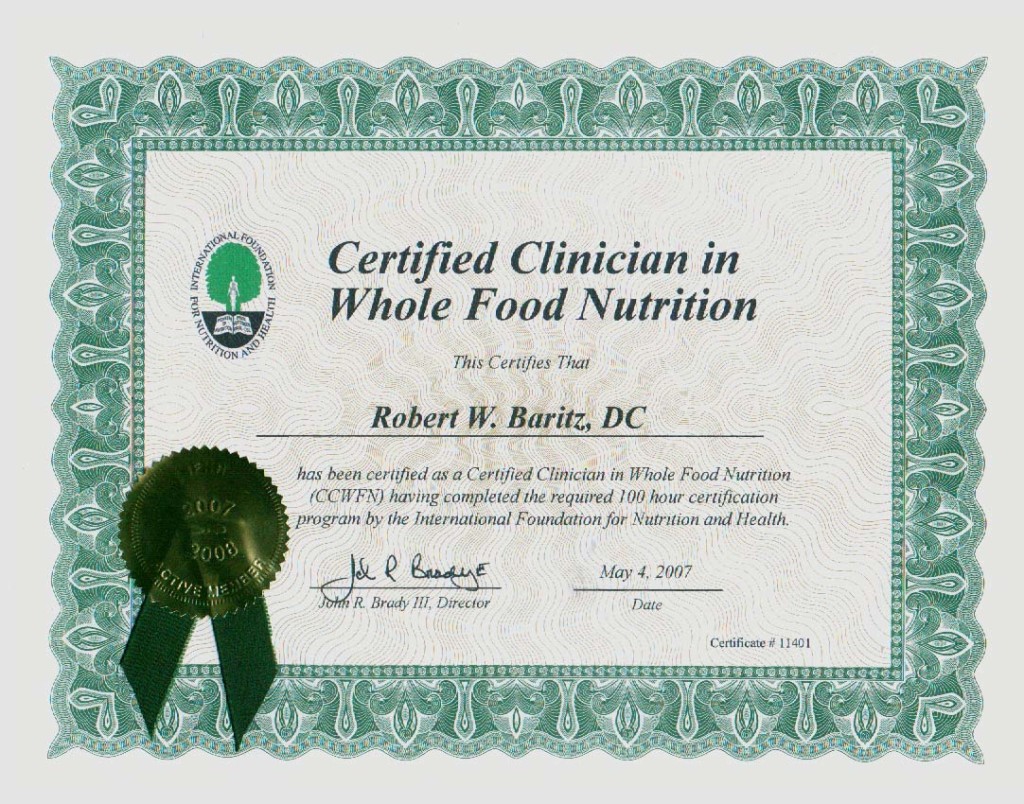Download the CCWFN brochure HERE
Already enrolled in the course?: Click Here
The investment for the CCWFN program is $4715.00 (77 contact hours included) and this depends on which textbooks you may already have.
What separates you from the person working at a health food store?
- Your knowledge of the biochemistry and physiology of nutrition
- Your understanding of physiological pathways and how they affect your patient’s/client’s overall health
- Your ability to support and mentor your clients/patients and their families in their quests for long-term health
- Your willingness to educate yourself past the pharmaceutical model (pathology of dysfunction/disease) and practice a true primary preventive model and view functional conditions (biochemistry and physiology of nutrition) through foundational nutrition
- Your knowledge and understanding of foundational issues and their root causes that effect health
- Your commitment to not be satisfied with a single protocol and your willingness to change the paradigm about the overall health needs of your clients/patients and your community
As every practitioner expects compliance from their clients/patients, IFNH expects the same compliance and dedication from those who enroll in the Certified Clinician of Whole Food Nutrition (CCWFN) certification program. The staff and instructors of IFNH offer the same passion and commitment that energized those early pioneers in nutrition to its enrollees. The CCWFN certification program is committed to supporting its students in building a better practice, increase their efficiency and giving them the tools to change the lives of their clients/patients and their families.
Save $1500 on educational materials by enrolling in the 100-hour CCWFN certification program. After that discount, the program is $4,715 for clinicians (CCWFN) and $4,315 for technicians (CTWFN). Your investment includes contact hours. All previously owned required reading materials will be deducted from the price of the course. FINAL – CCWFN Application and required reading form May 2024.
Continuing Education Units (CEUs) available for $10/unit (included in totals above):
1. CCWFN Modules 1 & 2 are approved for CE units with NCCAOM (provider #1130)
2. PACE provider for the Federation of Chiropractic Licensing Board:
International Foundation for Nutrition and Health (IFNH) is recognized by the PACE program of the Federation of Chiropractic Licensing Boards. NOTE: States that do not accept PACE include Arkansas, Delaware, Hawaii, Illinois, Michigan, Mississippi, New York, Oklahoma, Pennsylvania, West Virginia, Wisconsin, Alberta, British Columbia, Manitoba, New Brunswick, Newfoundland/Lab, Ontario, PE Island, Quebec, Saskatchewan. To learn about the FCLB regulatory boards, please visit: https://pacex.fclb.org/pages/RegulatoryBoards.php
3. Accredited as a provider for the American Nurses Credentialing Center (ANCC):
International Foundation for Nutrition and Health is accredited as a provider of nursing continuing professional development by the American Nurses Credentialing Center’s Commission on Accreditation.
The 100-hour Certification Program
Our 100-hour CCWFN certification program is designed around the Nutritional Exam and an expanded version of the in-person Foundation of Nutritional Therapy (FNT) seminar series first conducted in 1996. In 2002, the FNT series was converted to the online CCWFN certification program. This program focuses on the foundational issues and those root causes that upset body chemistry. The student is learning about the aberrations of functions displaying patterns of symptomatology with definite characters of presence or absence. Dysfunction can always be traced back to a definite physiological abnormality. In other words, we are looking at function not pathology of the disease process. These programs (CCWFN and CTWFN) were developed to support the practitioner, their staff and their clients/patients with real tools that help make a practice grow.
The Nutritional Exam, which is an important part of this program, incorporates many simple hands-on tests that help the practitioner(s) better manage his/her/their clients/patients through quick verifiable results. This program is intended to help you manage your practice in a true wellness model through a comprehensive program of practice management and better understanding of the foundational model.
All the online classes and support materials offered in this program were designed to reinforce the issue of function and the body’s need for real, natural food for maximum longevity and health.
NEWS: IFNH is a vendor with the Massachusetts Rehabilitation Commission (MRC) which provides vocational rehabilitation services that break down barriers and empower people with disabilities to live life in their own terms. This means MRC will pay for the CCWFN program for clients who are interested. If you know someone – maybe a staff member, Patient Advocate, or practitioner with a disability – who is interested in completing our CCWFN or CTWFN program, please direct IFNH to your state’s voc rehab office and we’ll get started.
Introduction and Overview
The International Foundation for Nutrition and Health (IFNH) has offered our Certified Clinician of Whole Food Nutrition (CCWFN) certification program to licensed health practitioners and provides enhanced knowledge of foundational nutrition related to the physiology of nutrition and biochemistry of the body since 1998. The CCWFN is a provider direct, learner-paced online certification program based upon extensive research into the key factors of a successful nutritional practice by building patient compliance and/or incorporating whole food nutrition into an existing wellness practice.
The purpose of the CCWFN program is to guide the practitioner to a better understanding of balanced body chemistry through the examination of foundational nutrition. The program consists of many hands-on nutritional exams and practice workshops which were used extensively as part of the training process for doctors in medical schools until the 1950s.
Our mission is to instruct health practitioners on how to utilize the scientific research and therapeutic use of whole food nutrition and to educate, through the practitioners, the lay public n the functional perspective and principles of effective whole food nutrition and lifestyle that are advantageous to good health. Content includes the application of scientific knowledge to patient care and therapeutic interpersonal relationship skills related to body chemistry. The program is heavily steeped in practice management and patient implementation tools.
In order to obtain the CCWFN 100 certification hours for this program the learners must complete the following:
- Learner must be a licensed practitioner: MD, ND, NP, LAc, DC, DDS, RN, RD, DO, PA-C, BSN, etc or have an advanced graduate degree in a related nutrition topic
- Complete the three program modules consecutively
- Complete 77 contact hours of required course material, lecture slides, live weekly teleconference calls (recording available for one week), and post exams
- NOTE: The weekly teleconferences are review lectures for Modules 1 & 2 only, with Q&A time for mentoring.
- Complete summative evaluation following completion of each modules
- All exams must be passed with at least an 85% grade point (75% grade point for CTWFN participants)
- This program must be completed within 30 months of signing the enrollment form of Module 1. If each Module (Module 1-3) is not completed within 10 month of the enrollment form for that particular Module, a $100 reactivation fee will be required to further access this education activity in the learning portal. You have 10 months to complete each Module independently and they must be completed consecutively. This gives an additional 3 months to complete the module.
- Balance paid in full for all three modules. Only Modules 1 & 2 for CTWFN participants need to be paid in full.
Investment includes: tuition, contact hours, transcript, certificate of completion, required textbooks, professional membership, live weekly teleconference lecture calls (Sept – June; recording available for one week following live lecture call), enrollment fee, shipping & handling, technical support. FINAL – CCWFN Application and required reading form May 2024
The program covers the following modules and objectives:
MODULE 1
- Digestion (physiology, assessment, management)
Students will learn:
- About the early pioneers in nutritional biochemistry
- practical endocrinology and the relationships between different glands
- the connection between dental decay and physical degeneration based on human studies
- the ‘Pure Food and Drug Act’ from 1906
- difference between biochemistry vs chemical therapy
- why the calcium:phosphorus ratio is an important measuring stick for health
- what is unfavorable towards the development of nutritional deficiencies that adversely affect the body’s health
- understand the critical need for proper hydrochloric acid
- several digestive reflex points including hydrochloric acid reflex point, pancreatic enzyme reflex point, and Murphy’s Sign reflex point
- practice digestive system tests to identify and define digestive dysfunction
- Glucose Management/Sugar Handling issues (physiology, assessment, management)
Students will learn:
- review function and not pathology
- the 10 most common reasons for medical office visits and how connected to sugar handling issues
- how one teaspoon of sugar interferes with the body’s metabolism
- hormonal control and abnormalities of blood glucose
- understand how sugar depresses posterior pituitary response
- how disease is a process, not an entity
- signs of hypoglycemia and hyperglycemia and how long standing sugar handling issues stress the endocrine system
- blood pressure indicator to address vitamin B complex deficiency
- understand the ricochet romance between the pancreas, adrenal, and liver with sugar metabolism
- several blood sugar reflex points including inguinal ligament palpation, liver reflex point, and several adrenal support tests
- practice sugar handling tests to identify and pancreas, adrenal, and liver dysfunction
- Musculoskeletal (physiology, assessment, management)
Students will learn:
- how musculoskeletal issues represent the impact of today’s lifestyle and diet
- an upset body chemistry equates to inflammation and calcium metabolism issues
- understand calcium metabolism and how co-factors enable calcium to work
- two glands which control the amount of calcium in the bloodstream
- importance of an ideal 2.5:1 calcium:phosphorus ratio
- systemic alkalinity and acidosis, review pH and how it reflects on body chemistry
- difference between two types of calcium – ionized and non-ionized
- sports nutrition and the special dietary needs of sports activities
- musculoskeletal tests including tissue calcium test, essential fatty acid test, neuro-lingual test, and breath holding test
- practice musculoskeletal system tests to identify and define calcium metabolism and essential fatty acid deficiencies
Faculty for MODULE 1
Jay R. Robbins, D.C., CCN, D.A.C.B.N.
Dr. Jay Robbins is a Chiropractor and Certified Clinical Nutritionist. He has been in practice in Southern California for over 25 years. Dr. Robbins is a member of the American Chiropractic Association’s Council on Nutrition, and has received his Diplomate through the American Clinical Board of Nutrition. He is a senior faculty advisor for the International Foundation for Nutrition and Health located in San Diego, California.
Dr. Robbins is a popular speaker and lectures frequently throughout the United States to chiropractors and other natural health care practitioners. He has presented workshops and lectures at several state and local conventions and nearly every chiropractic school in the country.
He has taught for the International Foundation for Nutrition and Health (IFNH) nationwide and remains a member of the Advisory Board.
Ernest G. Caldwell, D.C., CNC
The late Dr. Caldwell (2021) graduated from Bishop Brady High school and Franklin Pierce College. He attended the College of Chiropractic and practiced in CA for 25 years before returning to NH. He was certified in non-cracking Myofascial Chiropractic Release. He was a certified instructor in whole food and nutrition for the INFH for 15 years.
Michael D. Allen, D.C., N.M.D., D.A.A.P.M., D.I.B.A.K., D.A.B.C.N.
Dr. Allen’s professional career started when he graduated with honors from the Los Angeles College of Chiropractic in 1977. He has received Diplomates from the International Board of Applied Kinesiology (DIBAK) in 1980, and the American Academy of Pain Management (DAAPM) in 1991. Dr. Allen started his specialized post-graduate neurology training with the Carrick Institute for Graduate Studies in 1991 and received a Diplomate from the American Board of Chiropractic Neurology (DABCN) in 1993, ultimately receiving a Fellowship from the American College of Functional Neurology (FACFN) in 2009. Since then his studies have earned him two more Diplomates from the American Academy of Integrative Medicine (DAAIM), and the Chiropractic Board of Clinical Nutrition (DCBCN), each in 2015.
Dr. Allen has been a member of the International College of Applied Kinesiology (ICAK) since 1978, having served two terms each as the President and Vice President of its International Council that oversees 18 chapters worldwide, as well as having been the International Delegate for the United States Chapter of the ICAK, and two terms each as the Vice President and Secretary of the United States Chapter. He is also a member of the International Association of Functional Neurology and Rehabilitation (IAFNR), the Arizona Naturopathic Medical Association (AzNMA), and the German Medical Society for Applied Kinesiology (DAGAK, Hon.). He has taught for the International Foundation for Nutrition and Health (IFNH) nationwide.
MODULE 2
- Endocrine and Male/Female hormone module (physiology, assessment, management)
Students will learn:
- the connection between endocrine dysfunction and disruption of basic body chemistry (both physical and mental)
- scientific research of Dr. Melvin Page and genetic disposition
- how to observe the root cause and not treat the symptoms or focus on the manifestation of the body’s malfunctioning metabolism
- Dr. Harrower’s chart of the relationships of the endocrine organs
- the first thing that affects the endocrine system
- practice endocrine system tests to identify and define endocrine dysfunction
- Immune/Allergy (physiology, assessment, management)
Students will learn:
- how immune & allergy dysfunction originate from sugar handling issues, compromised digestion, and toxicity
- about the ‘terrain theory’ based on the scientific research of Dr. Antoine Beauchamp who points how depending on the health of the body, determines if the body can withstand the bombardment of disease or infection
- the connection between calcium metabolism and its relation to the immune response
- how primitive people living on a whole food diet had less than 1% dental caries and degenerative disease
- two intrinsic defense systems to immunity
- the importance of cellular & humoral responses
- define primary and acquired immunodeficiency
- understand the three basic concepts that must be addressed for immune-related dysfunction
- to practice immune/allergy tests to identify and define immune/allergy dysfunction
- Practice Management:
Students will learn:
- improved implementation of whole food nutrition
- implement a systematic process to increase compliance
- how to define their mission statement, design a report of findings script, and other supporting material for their nutrition practice, as well as lay out responsibilities for staff
Faculty for MODULE 2
Holly A. Carling, O.M.D., L.Ac, Ph.D
Dr. Holly A. Carling is a Doctor of Oriental Medicine (1989), Licensed Acupuncturist (1989 CA, 2002 ID), Doctor of Naturopathy (1999), Clinical Nutritionist (1984), Master Herbologist (1979) and a Diplomate of the National Certification Commission for Acupuncture and Oriental Medicine (1988).
She earned her Doctorate in Oriental Medicine and Acupuncturist degrees at South Baylo University in California. Additionally, she completed a second acupuncture internship program in Beijing, China and is certified by the Beijing Academy of Traditional Chinese Medicine (1989).
She received her Doctor of Philosophy degree in Naturopathy from La Salle University. Her background also includes Nursing, American as well as Oriental Herbal Medicine, Iridology, Homeopathy and extensive training from many organizations in nutritional counseling. These only scratch the surface. Dr. Carling has participated in more than 850 courses geared towards health and healing in many areas of alternative or complementary medicine. She has taught for the International Foundation for Nutrition and Health (IFNH) nationwide and remains a member on the IFNH Advisory Board.
Jeremy Kaslow, M.D., F.A.C.P., F.A.C.A.I
Dr. Kaslow’s professional expertise and interests include nutrition, detoxication, metabolism / biochemistry, immune enhancement, hormone optimization, balancing cellular redox, pain management, neurochemistry, and new techniques for allergies, autoimmunity, and intolerances.
He earned his Medical Degree from the University of California at Los Angeles in 1984. After completing a 3-year internship and residency in Primary Care Medicine, Dr. Kaslow completed a 2 year Fellowship in Immunology and Allergy for Adults and Children at the University of California at Irvine in 1989. He has been in private practice providing direct patient care since. He has taught for the International Foundation for Nutrition and Health (IFNH) nationwide and remains the President of the Board since 1997.
Dale Migliaccio, D.C.
Dr. Migliaccio attended the Cleveland Chiropractic College and graduated in 1984. He went on to a practice in California before becoming the Director at the Santa Barbara Wellness for Life in 2004 and remained in practice since. He has used diet, clinical nutrition, and healthy lifestyle habits as the foundation of his holistic approach to health for the 36 years he has been in practice.
He has taught over 50 seminars on clinical nutrition to over 3,000 healthcare practitioners, as well as assisted over 100 doctors in resolving their personal health issues and weight challenges. He has taught for the Price-Pottenger Nutrition Foundation and the International Foundation for Nutrition and Health nationwide.
Dr. J. Rodney Shelley, BS, D.C.
Dr. Shelley graduated from the Los Angeles College of Chiropractic in 1976 and was in private practice for two decades. He has been a Nutritional Support Consultant and CEO of ChiroSave Health Plan. He taught for the IFNH nationwide for over a decade on patience management and practice management.
MODULE 3 (approved practitioners only)
- Nutritional Biochemistry (physiology, assessment, management)
Students will learn:
- to review the common lab tests and identify the relationships between different markers
- understand nutritional biochemistry and the connections to degenerative conditions
- define the six root causes for any chronic condition
- how the autonomic nervous system is the master controller of biochemistry and design nutritional programs to promote healing and health
- Dr. Melvin Page’s calcium:phosphorous ratio and the relationship to the endocrine graph
- calcium metabolism and bone deterioration (both orally and structurally)
- understand how food choices exert a powerful influence on calcium and phosphorus levels, which reflect metabolic and hormonal effects
- blood chemistry markers and common clinical patterns
Faculty for MODULE 3
Jeremy Kaslow, M.D., F.A.C.P., F.A.C.A.I.
Dr. Kaslow’s professional expertise and interests include nutrition, detoxication, metabolism / biochemistry, immune enhancement, hormone optimization, balancing cellular redox, pain management, neurochemistry, and new techniques for allergies, autoimmunity, and intolerances.
He earned his Medical Degree from the University of California at Los Angeles in 1984. After completing a 3-year internship and residency in Primary Care Medicine, Dr. Kaslow completed a 2 year Fellowship in Immunology and Allergy for Adults and Children at the University of California at Irvine in 1989. He has been in private practice providing direct patient care since. He has taught for the International Foundation for Nutrition and Health (IFNH) nationwide and remains the President of the Board since 1997.
In an effort to perpetuate Dr. Lee’s legacy, IFNH created the Nutritional Exam and this 100-hour certification program. This 7-part series has successfully helped thousands of professional health practitioners make the transition from a disease-based model to a true primary prevention model.
Faculty
Jeremy Kaslow, MD, FACP, FACAI – George J. Goodheart DC, DIBAK, FICC
Holly A. Carling, OMD, LAc, PhD – Art Capperauld, DC, CCWFN – Robert J. Peshek, DDS
Michael Allen, DC, NMD, DAAPM, DIBAK, DACBN – Ernest Caldwell, DC, CIWFN
Michael Dobbins, DC – Stuart White, DC, CCWFN – Ray Bisesi, DC, CCWFN
Jay Robbins, DC, DACBN, CCN – Rod Shelley, DC – Dale Migliaccio, DC
Leo Roy, MD, ND – Jonathan V. Wright, MD – James F. Murphy, OD
David Minzel, PhD, CNC
